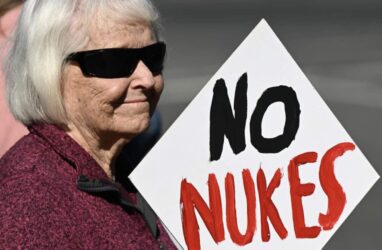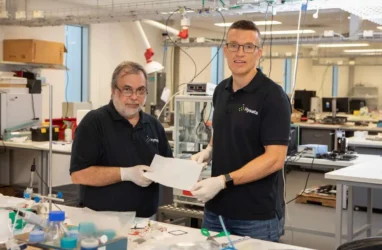Feed aggregator
Protection deal for Amazon rainforest in peril as big business turns up heat
Exclusive: With Brazil’s politicians, agribusiness organisations and global traders piling on the pressure, the highly successful 2006 Soy Moratorium is under threat
One of the cornerstones of Amazon rainforest protection – the Soy Moratorium – is under unprecedented pressure from Brazilian agribusiness organisations, politicians, and global trading companies, the Guardian has learned.
Soy is one of the most widely grown crops in Brazil, and posed a huge deforestation threat to the Amazon rainforest until stakeholders voluntarily agreed to impose a moratorium and no longer source it from the region in 2006.
Continue reading...North Dakota coal plant CCS project loses lead developer despite DOE support
California power emissions drop YoY in October despite renewables receding, natural gas demand rising
EU parliament, countries agree to delay anti-deforestation law
FEATURE: No sign of Canada’s 2035 climate target, despite mandate by law
Delays cause CO2 pipeline developer to withdraw permit application in Iowa
Women strongly opposed to nuclear power, just one in three men willing to live near one
The post Women strongly opposed to nuclear power, just one in three men willing to live near one appeared first on RenewEconomy.
Global markets are likely to withstand a Trump-led US withdrawal from the Paris Agreement
Australia could build a $3 billion industry making hydrogen electrolysers, CSIRO says
The post Australia could build a $3 billion industry making hydrogen electrolysers, CSIRO says appeared first on RenewEconomy.
EU earmarks over €4 bln from ETS revenues for cleaner cars
Vattenfall pauses CCS plans in Sweden -media
Too much focus on host country risk in global carbon trade, says project developer
Wolves to lose protection, as EU lowers bar for shooting wildlife
Downgrading species’ protection status for political gain puts decades of conservation efforts at risk, says WWF
Europe’s wolves will lose their “strict protection” status, alarming conservationists who fear for the survival of an animal brought back from the brink of local extinction.
A committee charged with saving wildlife took the wolf’s protection status down a notch on Tuesday after members voted through a proposal from the European Union that lowers the bar for shooting a wolf.
Continue reading...Cop29 gave us a Putin-friendly deal – and a glimpse of the dark future of climate talks | Fiona Harvey
The Baku Cop29 talks were marked by division and self-interest, with rancorous meddling right until the end
- Fiona Harvey is an environment editor at the Guardian
When I first visited Azerbaijan this spring, one fixture of the Baku skyline was unmissable. The bright orange of flaring – the product of the oil and gas extraction that makes up 90% of Azerbaijan’s export revenues – lit up the night sky, not far from the Olympic stadium, where nearly 200 nations would gather in November for the Cop29 climate summit.
Flaring burns methane, a powerful greenhouse gas, and is a major source of carbon emissions. If all the world’s flared gas were captured instead, it could power sub-Saharan Africa. But that entails installing new equipment, so producers don’t bother.
Fiona Harvey is an environment editor at the Guardian
Continue reading...Sustainable aviation too slow to take off, finds report
First industrial cement CCS plant ready to test CO2 storage under North Sea
Shift in sentiment in Brussels could lead to softening of ETS2, as EUAs set to rise more slowly –analyst
Nuclear energy debate draws stark gender split in Australia ahead of next year’s election
Survey finds 25 percentage point gender gap across all age brackets on whether nuclear power would be positive for the country, with majority of men saying it would
- Get our breaking news email, free app or daily news podcast
New data points to a stark gender split in attitudes towards nuclear energy, with women much more likely to say they don’t support it or think the risks are too great.
Research company DemosAu surveyed 6,000 people on behalf of the Australian Conservation Foundation and found 26% of women thought nuclear energy would be good for Australia, compared with 51% of men.
Sign up for Guardian Australia’s breaking news email
Continue reading...




